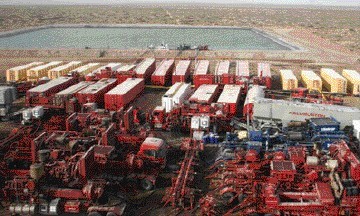
What a curious document it is, the Commons energy and climate change committee’s report titled The Impact of Shale Gas on Energy Markets.
This is really about the potential for shale gas in Britain – oh, and the possibility of shale oil – only the report’s multiple authors and advisers fail to realise that there was once a sizeable shale oil extraction industry in the Scottish central belt before it petered out in the early 1960s. I searched the report but there was no reference to that industry. All anyone said was that there might be shale oil in the UK.
The politicians involved in its creation are excited about the potential for a shale gas, indeed oil, industry in Britain. They major on the onshore opportunity but are clearly worried about the controversy that already surrounds shale gas, largely due to the process of fracking.
So they suggest shale gas exploitation could be tried offshore in the North Sea. But we first need to learn to crawl onshore and actually achieve credible production before trying much more expensive shale gas extraction offshore.
This is a very intensive process, where a huge number of short-life wells need to be drilled and serviced. The US experience tells us that.
Fracturing can be traced to the 1860s in the US, when liquid (and later solidified) nitroglycerin was used to stimulate shallow, hard rock wells in Pennsylvania, New York, Kentucky, and West Virginia. Although hazardous and often used illegally, nitro was spectacularly successful for oil well “shooting.” The object of shooting a well was to break up the oil-bearing formation to increase initial flow and ultimate recovery of oil.
The first experimental use of hydraulic fracturing was in 1947 and the first commercially successful applications in 1949. As of 2010, about 60% of all new oil and gas wells worldwide were being hydraulically fractured – that’s 2.5million wells, including thousands in the North Sea.
It’s routine and, without it, many onshore and offshore wells would have been failures. Nobody complains about fracking in the North Sea. There is a worrying naivety about the report. It says: “We conclude that if the US were to begin exporting its shale gas as LNG, the UK might find it economically attractive to import some of this gas. However, the significant transportation costs associated with shipping LNG, combined with expected demand for LNG from Asia, means that the price for this gas in the UK is likely to be significantly higher than that experienced in the US.” That is surely blindingly obvious.
The report says too: “Shale oil is likely to be present in the UK but it remains uncertain whether industry will consider shale oil economically worthwhile to explore.”
Oh dear. One wonders who advised the committee during its deliberations.